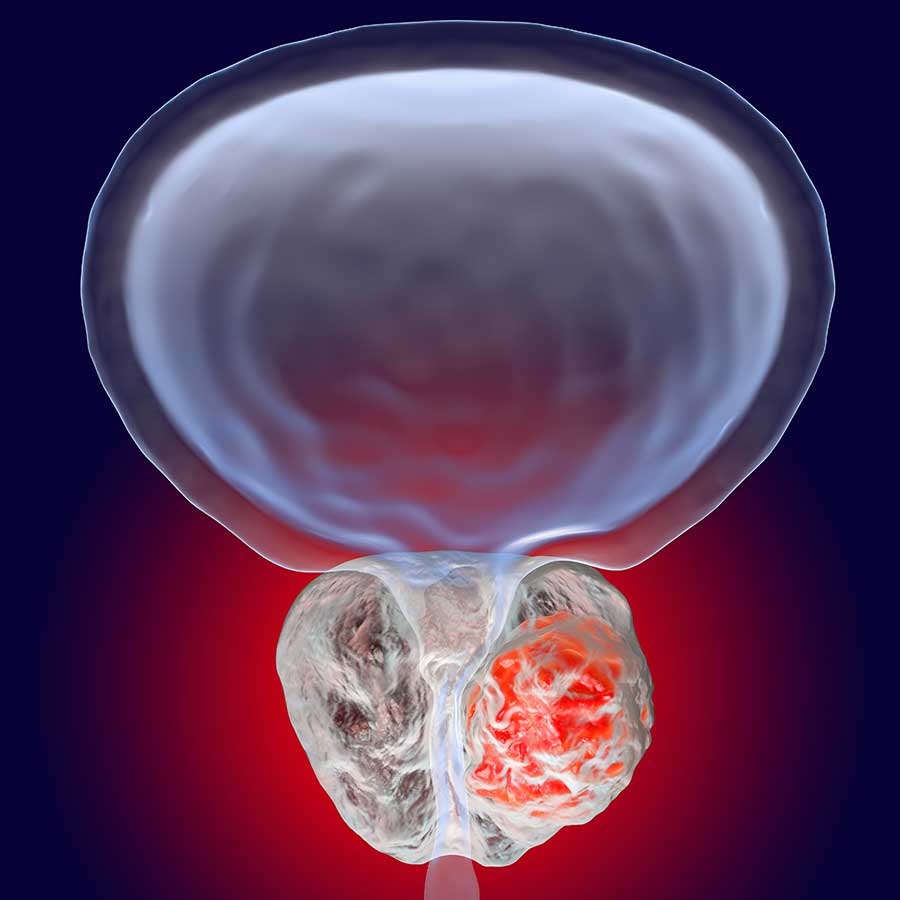Source: Cedars-Sinai Medical Center Sep 06, 2018 7 years, 4 months, 4 weeks, 1 day, 18 hours, 13 minutes ago
Scientists at Cedars-Sinai have discovered how prostate cancer can sometimes withstand and outwit a standard hormone therapy, causing the cancer to spread. Their findings also point to a simple blood test that may help doctors predict when this type of hormone therapy resistance will occur.
Prostrate Cancer
Prostate cancer is the second-leading
cause of cancer death in men, behind lung cancer, killing nearly 30,000 in the U.S. each year, according to the American Cancer Society. In its early stages, the most common type, adenocarcinoma, is curable and generally responds well to therapies, including those that target androgen -- a male sex hormone that stimulates tumor growth.
However, in certain patients, the cancer becomes resistant to androgen-targeted therapy, and the cancer recurs or spreads. One possible reason for that resistance, the study indicated, appears to be that the therapy causes some adenocarcinoma cells to become neuroendocrine cancer-type cells -- a rare type that normally appears in fewer than 1 percent of prostate cancer patients.
"This transformation is a problem because neuroendocrine prostate cancer is especially aggressive, metastasizes more readily and is more resistant to both androgen-targeted therapy and chemotherapy," said Neil Bhowmick, PhD, co-director of the Cancer Biology Program at the Samuel Oschin Comprehensive Cancer Institute at Cedars-Sinai. He is senior author of the study, published in the
Journal of Clinical Investigation, and Rajeev Mishra, PhD, former project scientist in his laboratory, is the lead author.
Bhowmick said about one-fourth of the patients who receive androgen-targeted therapy may relapse with tumors that show features of neuroendocrine prostate cancer and develop treatment-resistant disease, according to published research.
To learn more about this process, the investigators examined how cancer cells interact with the supporting cells near the tumor, referred to as the tumor microenvironment, in laboratory mice. They found these interactions raised the level of the amino acid glutamine, turning the supporting cells into "factories" that supplied fuel for the cancer cells.
"While glutamine is known to spur cancer growth, its role in prostate cancer cells to trigger reprogramming of adenocarcinoma cells into neuroendocrine cancer cells is a new and important finding," said Roberta Gottlieb, MD, professor of Medicine and vice chair of translational medicine in the Department of Biomedical Sciences at Cedars-Sinai. Gottlieb was a co-author of the study.
The team also examined how androgen-targeted therapy affected the cancer microenvironment.
"To our surprise, we found this type of therapy further changed the cellular environment in a way that caused adenocarcinoma cells in the prostate to transform into neuroendocrine cancer-type cells," said Bhowmick, professor of Medicine and Biomedical Sciences.
As the final step in validating the findings in mice, investigators compared levels of glutamine in the plasma of small groups of patients -- one with treatment-responsive prostate cancer and the other with treatment-resistant prostate cancer. They found that levels of glutamine were hi
gher in the second group.
This finding has potential implications for treating prostate cancer patients, said Edwin Posadas, MD, co-director of the Translational Oncology Program at the cancer institute and associate professor and clinical chief of the Division of Hematology/Oncology in the Department of Medicine at Cedars-Sinai.
"The study raises the possibility that a simple blood test measuring glutamine might be able to pinpoint when androgen-targeted therapy is failing in a prostate cancer patient and even predict when therapy resistance will occur," said Posadas, who co-authored the study. He said the team is designing a new study to test this hypothesis.
Reference: Rajeev Mishra, Subhash Haldar, Veronica Placencio, Anisha Madhav, Krizia Rohena-Rivera, Priyanka Agarwal, Frank Duong, Bryan Angara, Manisha Tripathi, Zhenqiu Liu, Roberta A. Gottlieb, Shawn Wagner, Edwin M. Posadas, Neil A. Bhowmick. Stromal epigenetic alterations drive metabolic and neuroendocrine prostate cancer reprogramming. Journal of Clinical Investigation, 2018; DOI: 10.1172/JCI99397
